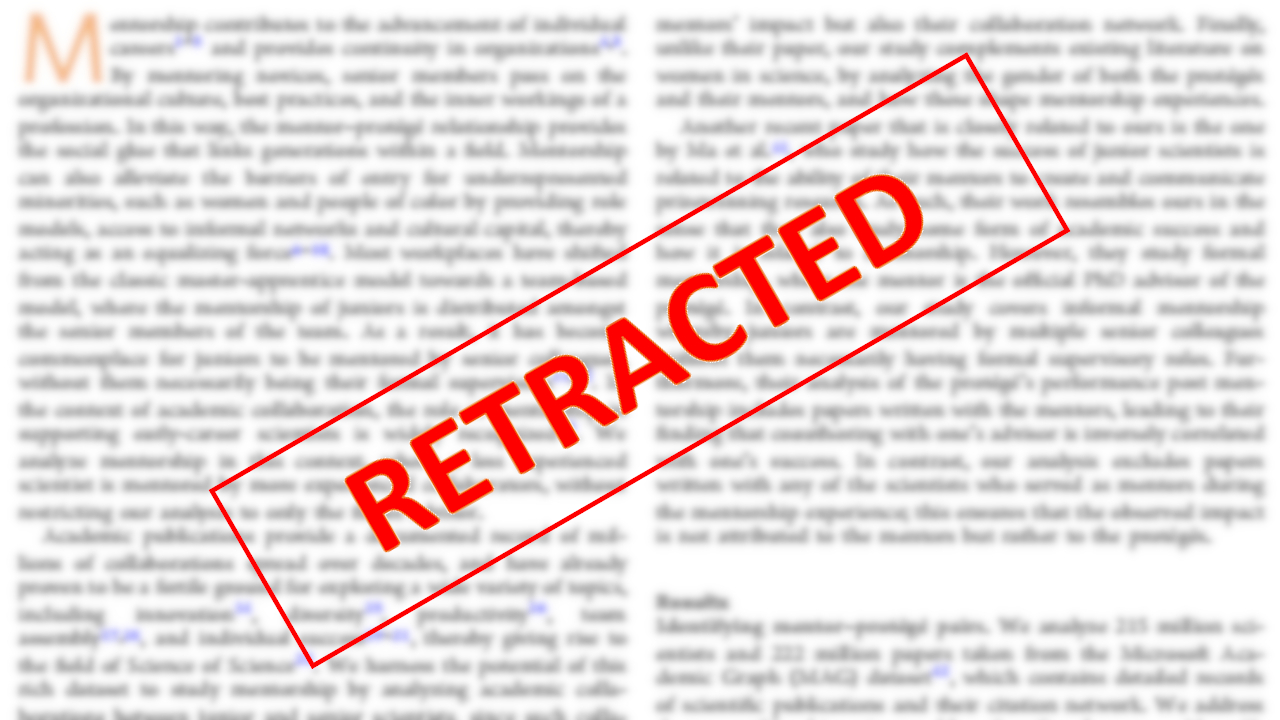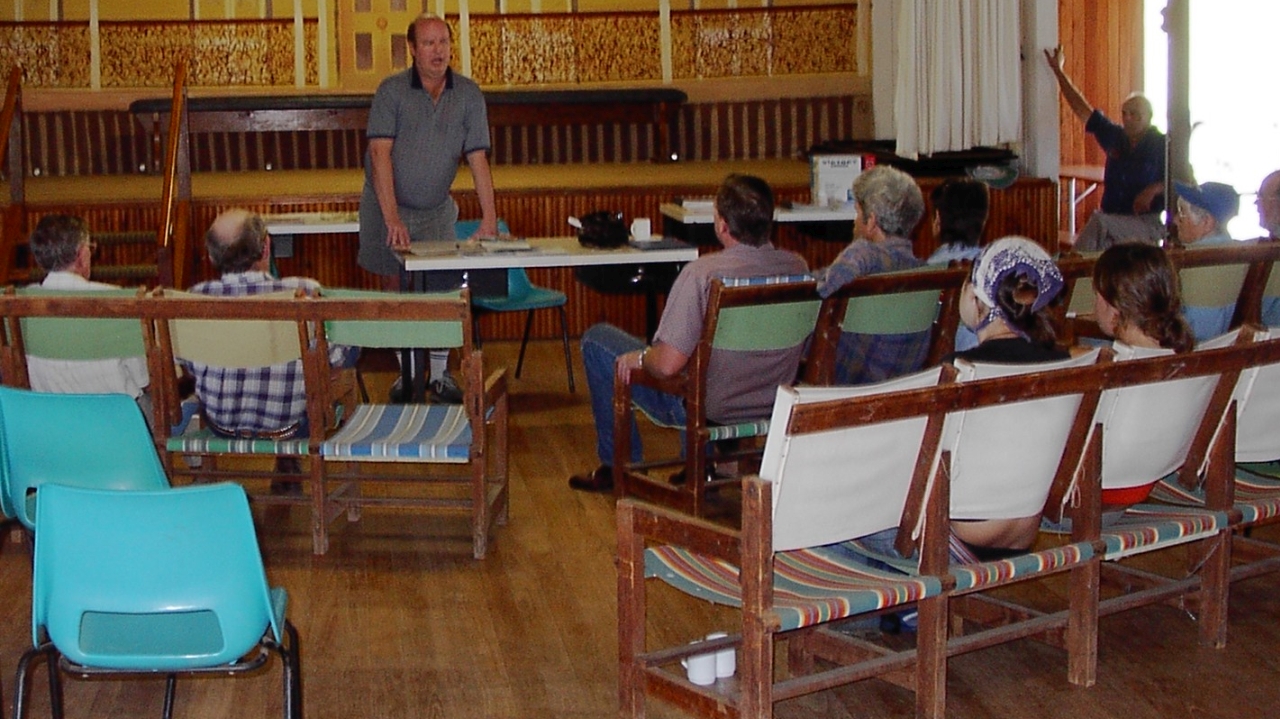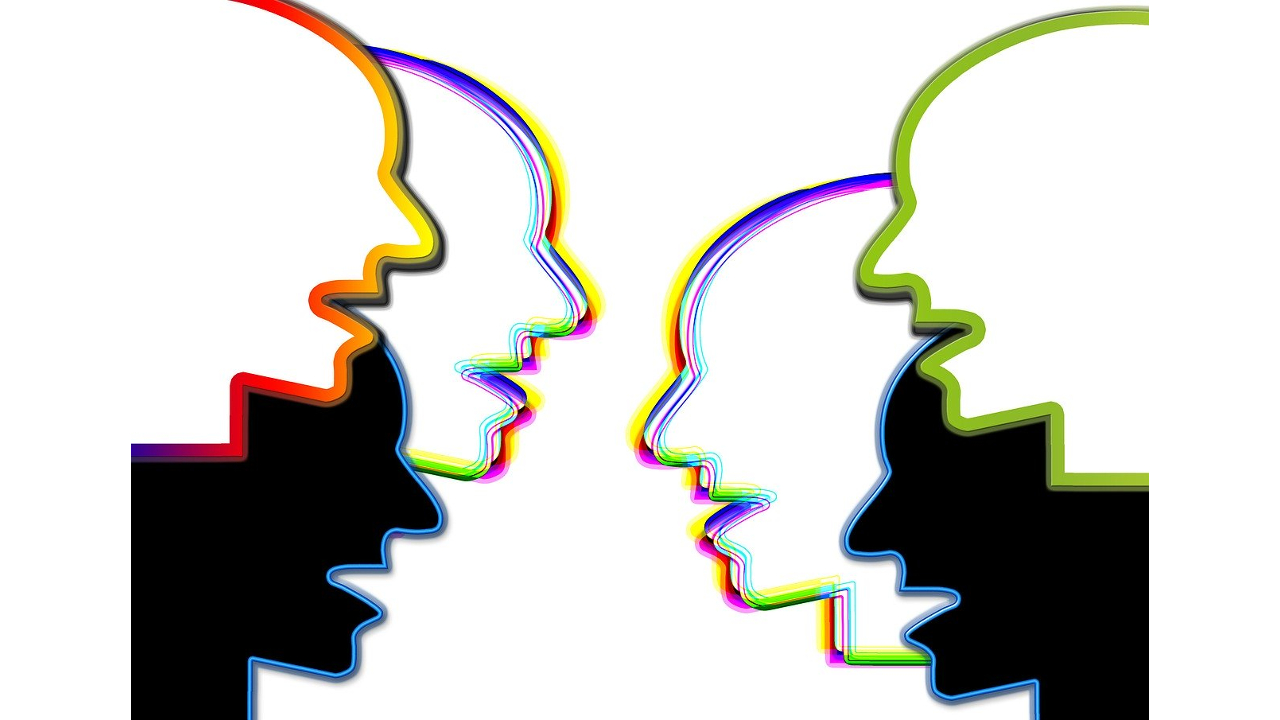Quality of science and science communication
-

The peer review system is broken. We asked academics how to fix it
Peer review can be exploitative, opaque and slow. There’s plenty that journals, publishers, and universities can do to make the…
-

Researchers more likely to downplay than exaggerate findings
Researchers have developed a tool for both scientists and journalists to use to help them calculate the uncertainty in research…
-

Unis want research shared widely. So why don’t they properly back academics to do it?
Universities can do better at supporting academics to share their research knowledge with the public, industry, and government.
-

RETRACTED ARTICLE: The association between early career informal mentorship in academic collaborations and junior author performance [Top 100 research & commentary of 2020]
A retracted scientific collaboration mentoring study highlights the importance of critically appraising all scientific research evidence before use.
-

Science communication is more important than ever. Here are 3 lessons from around the world on what makes it work
Science communication succeeds when it takes community knowledge seriously, works with other belief systems, and expects researchers to contribute to…
-

Why you need to think twice about responding to this call for knowledge sharing papers
The argument for why you should not work with the journal "Sustainability" as either an author or editor.
-

The infodemic in scientific literature during COVID
There's been a flurry of research into the pandemic, making it very hard to keep up, and the rush to…
-

Can I trust this map? 4 questions to ask when you see a map of the coronavirus pandemic
Maps can help ordinary citizens to work together with governments to limit the damage done by COVID-19, but they need…
-

‘There is a problem’: Australia’s top scientist Alan Finkel pushes to eradicate bad science
A significant number of papers are of poor quality. In considering why this might be the case, I have found…


